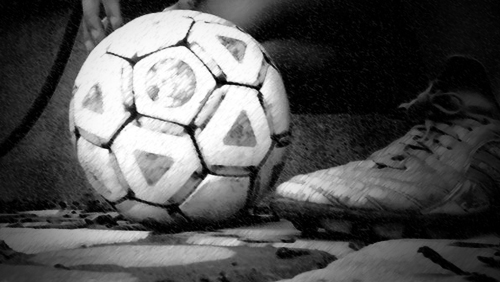The English Football Association (FA) is set to face a tough 2014 as the local tabloids in the UK release more news in connection with the recent match fixing scandals that have arisen in non-league football.
As we enter the festive period I am once again reminded of the time my world was turned upside down. I am, of course, talking about the realization that Santa Claus was a pipe dream, but this year my world is once again rumbling, only this time it’s the world of football that is doing its damnedest to knock my foundations down.

During the Match of the Day coverage of Cardiff City’s bore draw against Stoke City I watched incredulously as Stoke’s Charlie Adams was seemingly trying everything in his power to get sent off. Then whilst listening on the radio I struggled to fathom how Paul Ince’s Blackpool side could have received five red cards in just two matches.
The reason that these sorts of incidents are now piquing my interest – and let me be clear I am not accusing either of them of anything other than acts of stupidity – is because of the recent match fixing scandal that has rocked English football, after several people were arrested in connection with alleged match fixing in non-league football involving Singaporean fixers.
So my heart sunk even deeper when I learned that a further six men have been arrested in connection with alleged match fixing in the Sky Bet Championship; and of those arrested they included Blackburn striker DJ Campbell, who police are reportedly investigating after a yellow card he received in a recent match against Ipswich.
Five of the six men arrested are professional footballers with Oldham striker Christian Montano and Tranmere players Ian Goodison, Sam Sodje and Akpo Sodje joining Campbell on bail until April of next year.
The most startling revelations come from the mouth of Sam Sodje, who was hustled by an undercover reporter from The Sun newspaper who claimed that he could arrange for footballers in the Sky Bet Championship to get themselves carded for tens of thousands of pounds; claimed he could also fix Premier League matches, as well as continuing to say he was working on doing likewise at this summers World Cup in Brazil.
Sodje also claimed that he deliberately got himself sent off earlier this year whilst playing for Portsmouth. Sodje punched Oldham’s Jose Baxter twice in the groin back in February (see video below), and claims to have been paid £70,000 for his part in the collusion. He also said he could arrange for his brother Akpo to get sent off by simply removing his shirt after scoring a goal.
So what does this mean for the integrity of the sport, and more importantly, what does this mean for the future of these types of ‘spot’ bets in those gambling markets?
Across the pond, Gov. Chris Christie is trying everything in his power to give New Jersey residents the option to be able to make a wager on a sporting event from the comfort of their own home.
He is receiving opposition from a number of factions, more notably the four major sporting leagues: The National Basketball Association (NBA), The National Football League (NFL), the National Hockey League (NHL) and Major League Baseball (MBL), and also the National Collegiate Athletic Association (NCAA).
Their nutshell argument is to protect the integrity of professional and amateur games from the reach of those who would like to corrupt the game through the mode of match fixing.
That sounds familiar.
“Amateur and professional sports are an integral part of American culture particularly among the country’s youth who often look up to athlete’s as role models,’ the leagues said in a complaint against Christie’s move to legalize sports betting in the garden state.
They continued to state that allowing and promoting gambling “would irreparably harm amateur and professional sports by fostering suspicion that individual plays and final scores of games may have been influenced by factors other than honest athletic competition.”
The counter argument is that Americans gamble billions on sports betting through illegal channels, and that by legalizing it the sports federations have more control over the problem by ushering people away from illegal sports funnels and into the legal ones.
Football (or Soccer to Americans) is the most popular sport in the world, and the latest revelations that Sky Bet Championship matches are being rigged are a huge cause for concern. It shows that despite having a legalized sports betting system in place, and support and information available for players, corruption will still find it’s way into the game.
The recent revelations that the former Premier League footballer Michael Chopra ran up debts of £2m during his gambling days, and even agreed to a transfer away from a club he loved just so he pay off some of his debts, goes to show that anyone, irrespective of levels of income, can find themselves in a hole so big that they would grab anybody’s hand to climb out of it.
What happens next to those involved in this recent outrage could shape the future of this problem. It’s interesting to note that in both recent high profile cases it is the undercover reports of the tabloids that have uncovered the deceit and not the National Crime Agency (NCA) or the Football Association (FA).
So players now know they can get caught, but what happens to them when they do will either act as a deterrent for players, or will allow people like Sodje to keep banging people in the balls without fear of consequence.
All four of the American major leagues has it’s own security detail to keep a watchful eye on anything untoward in this area, and perhaps it’s time that the English football leagues started to follow suit?
